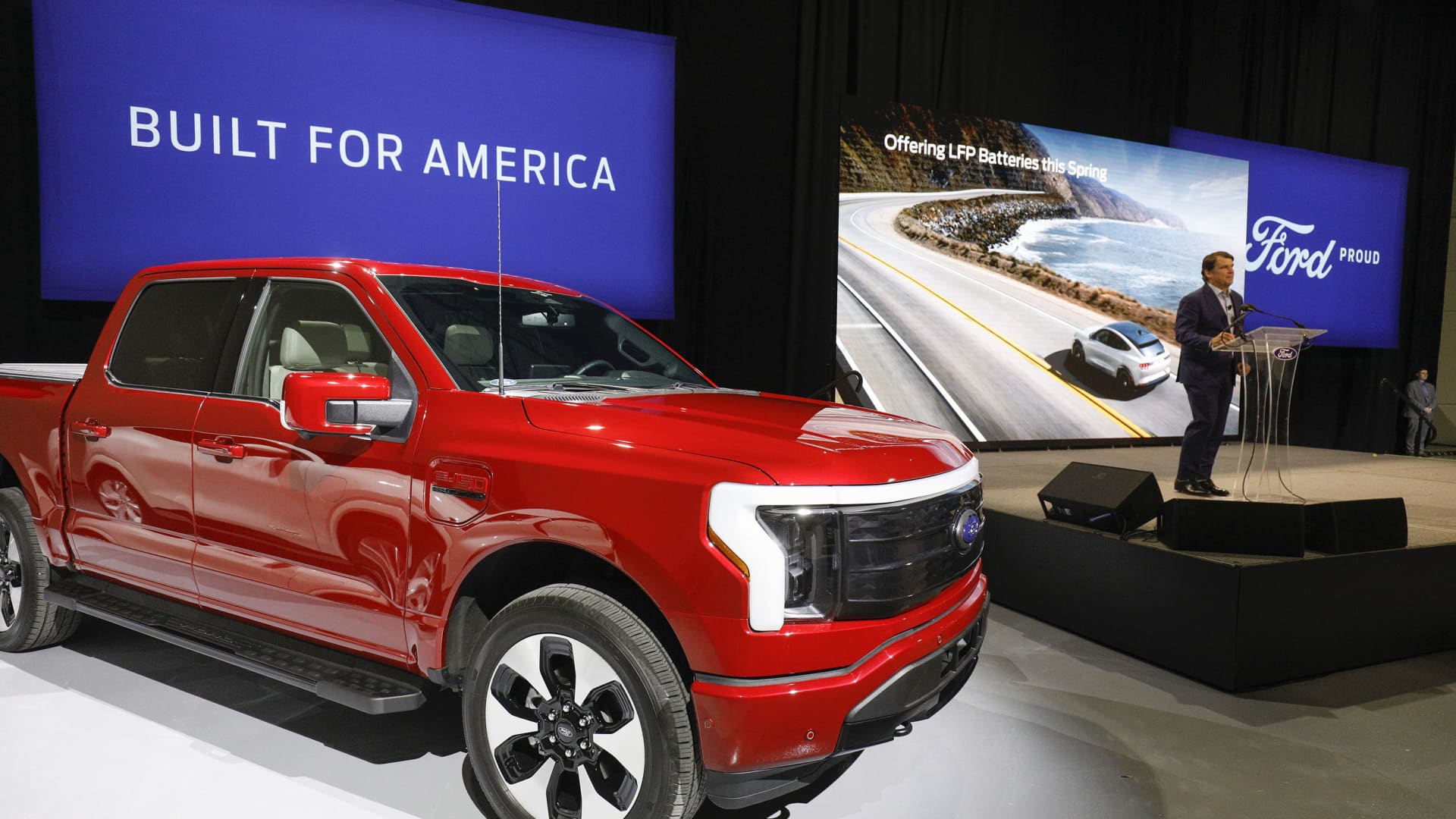Ford CEO Jim Farley recently announced a partnership with China-based battery company Contemporary Amperex Technology (CATL) to establish an electric-vehicle battery plant in Marshall, Michigan. However, U.S. lawmakers are now seeking to review the licensing deal between Ford and CATL to produce battery cells at the planned $3.5 billion Michigan plant.
In a letter addressed to CEO Jim Farley, the chairs of the House Select Committee on the Chinese Communist Party and the House Ways and Means Committee demanded a copy of the licensing agreement and any communication related to the deal between Ford, CATL, and the Biden administration. The lawmakers also raised concerns about the number of American workers compared to Chinese workers, whether the deal qualifies for federal tax funding, CATL’s potential association with forced labor practices, and its impact on reducing dependence on China for EV parts and materials.
Ford’s Michigan plant, set to open in 2026, aims to employ about 2,500 people and produce new lithium iron phosphate (LFP) batteries. These batteries offer cost advantages and assist Ford in increasing its EV production and profit margins. By using LFP batteries, Ford follows the footsteps of EV leader Tesla in reducing cobalt usage and creating more sustainable battery cells.
According to the lawmakers’ letter, several hundred of the anticipated 2,500 jobs will be filled by CATL employees from China until the licensing agreement expires in 2038. Ford has defended the deal, emphasizing that it is merely licensing CATL’s processes to create jobs in Michigan.
The licensing agreement is under scrutiny from lawmakers who question the relationship between American businesses and Chinese companies due to concerns over human rights abuses and military campaigns by the Chinese Communist Party. Congressman Mike Gallagher, chairman of the House Select Committee on the CCP, is among those who have raised concerns.
Ford spokesperson T.R. Reid stated that the company is reviewing the letter but refrained from commenting directly. Reid reiterated that the project aims to manufacture batteries in the U.S., creating jobs and benefiting the country. Ford anticipates that the battery cells produced at the plant will be eligible for federal incentives under the Biden administration’s Inflation Reduction Act.
This is not the first time the Ford-CATL partnership has faced criticism. Republican lawmakers, including Senator Marco Rubio and Representative Jason Smith, have previously expressed concerns about the collaboration. Smith had previously written to Farley seeking more details about the deal, which he felt were lacking in Farley’s response.
Moreover, CATL’s ties to Xinjiang Lithium are also questioned due to the region’s alleged state-sponsored labor transfer programs and surveillance. Xinjiang Lithium aims to be the largest lithium carbonate producer globally and is connected to companies engaging in such practices.
Denial of responsibility! VigourTimes is an automatic aggregator of Global media. In each content, the hyperlink to the primary source is specified. All trademarks belong to their rightful owners, and all materials to their authors. For any complaint, please reach us at – [email protected]. We will take necessary action within 24 hours.


